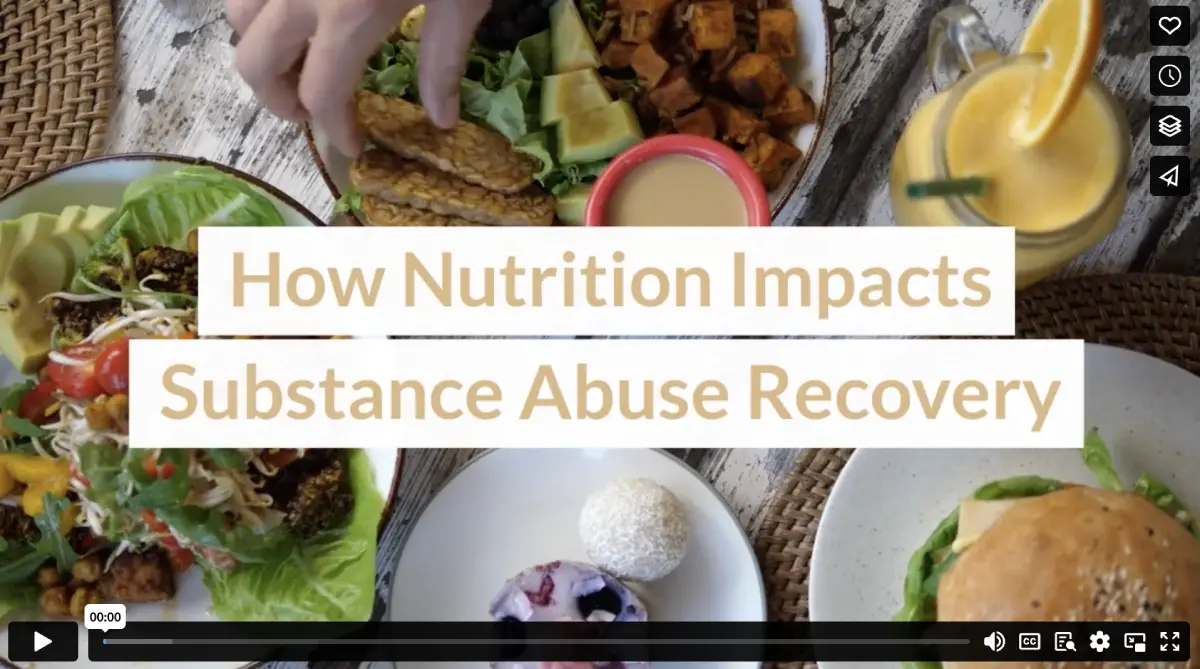If you’ve had an addiction to drugs or alcohol, you may have noticed a change in your appetite—when, what, or even if you eat. Substance abuse can interfere with many bodily processes, including how we process nutrition.
So, how does nutrition affect your recovery, and how do you repair the damage caused by illicit drugs and alcohol as you enter drug rehab?

(rawpixel.com/Freepik)
Addiction and Appetite
Substance use can lead people to make unwise choices regarding their nutritional needs:
- Users may have no desire for food or forget to eat.
- Users may prioritize high-fat, high-sugar foods as they trigger the same chemical releases as drugs do.
- Others may eat too much, leading to weight problems.
These eating habits can lead to serious health problems.
Malnourishment: As users prioritize substance use or the use of unhealthy foods rather than foods with nutritional value, they can become malnourished. They have nutrient deficiencies that affect other bodily systems. These deficiencies include B vitamins, Omega fatty acids, Vitamin A, Vitamin D, calcium, magnesium, and zinc. Symptoms of nutritional deficiencies include peripheral neuropathy (nerve damage), anemia (decreased red blood cells), elevated blood glucose levels, excessive fatigue, electrolyte imbalance, muscle wasting, weakened lungs, and slower healing.
Organ Damage: Drugs and alcohol can damage the organs responsible for digesting food and pulling nutrients out for the body to use, including the stomach lining, liver, intestines, and pancreas. Organ damage can lead to conditions such as irritable bowel syndrome (IBS), leaky gut, bacterial infection, fungal infection, acid reflux and esophageal damage, chronic systemic inflammation, and ulcers.
Obesity: Some drugs increase appetite, or users may experience increased appetite while going through withdrawals. Drugs overstimulate the release of neurotransmitters like dopamine and serotonin that make you feel good. Your body quits producing them at normal levels without stimulation. It can take a while for them to function correctly after stopping substance use.
Cravings for simple carbs, which stimulate the release of these neurotransmitters, can be intense, leading to weight gain. Obesity leads to heart disease, cancer, Type-2 diabetes, stroke, sleep apnea, gallstones, joint problems, back problems, shortness of breath, low energy, lowered sex drive, and depression.
How To Fix The Damage
Fortunately, many nutrition-related conditions are reversible. A proper diet and nutritional education are essential to ease some of the withdrawal symptoms and aid in overall recovery.
Hydrate: People in recovery are often dehydrated, and water can help flush toxins from your system. Aim for eight cups of water daily. Water is the best source of hydration, but you can add flavors like lemon or lime juice, herbal tea, crushed cucumber, mint, or fruit to the mix. Avoid caffeinated beverages as the caffeine dehydrates you. (If you really need your coffee, drink extra water to compensate.) Avoid sugary drinks that will spike your blood sugar.
Complex Carbs: Complex carbohydrates are whole fruits, vegetables, and grains. They have fiber, antioxidants, vitamins, and minerals necessary for a healthy life in their natural, unprocessed state. The fiber slows the absorption rate, providing sustained energy rather than blood sugar spikes and crashes.
Protein: Lean protein (meat, eggs, and dairy) provides nutrients that aren’t found in large quantities in plant-based foods. If you’re vegan, make sure you find plant sources to replace these nutrients. They are the building blocks of all living tissue and necessary for many bodily functions.
Fats: Fat stores energy throughout the body, provides insulation against temperature changes that could otherwise damage organs, cushions the organs to protect them from impact, absorbs and stores certain vitamins, promotes brain and nervous system health, and helps with healthy cell turnover and function. Fats are also a primary ingredient in hormones. The best sources of fat are olive oil, coconut oil, ghee (clarified butter), avocados, wild-caught fish, and organic dairy.
Eat small, balanced meals to keep your blood sugar stable. It may be difficult to start changing your eating habits, but it gets easier over time.
Compulsive Eating Behaviors
People with addictions may experience other food-related addictions during substance use or as a result of withdrawal.
- Binge Eating: Eating excessive amounts of food without purging.
- Bulimia Nervosa: Eating excessive amounts of food, then purging by vomiting or laxative misuse.
- Anorexia Nervosa: Eating too little to sustain life.
Eating disorders like these are compulsive behaviors you may not feel you can control. These conditions should be addressed while you seek treatment at an addiction recovery center, as one condition can drive the other and make recovery more difficult.
Conclusion
When seeking an opioid recovery center, verify the center addresses this important topic as part of their treatment protocols. Nutrition can make a huge difference in your overall health and ability to move forward. For lasting addiction recovery, you need to treat the whole person, including any concurrent conditions, not just a few of the symptoms.
Video
Infographic
If you’ve battled drug or alcohol addiction, you may have noticed changes in your appetite. Proper diet and nutrition are important for managing withdrawal symptoms and aiding recovery. Look at the infographic below to learn more.


